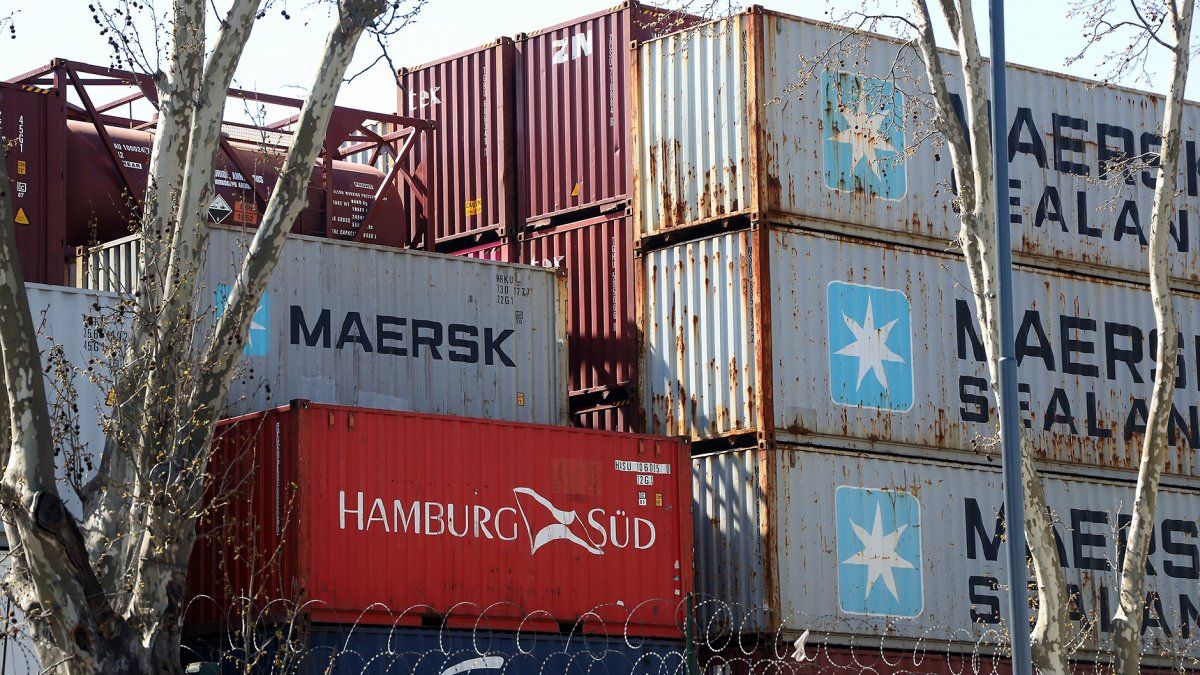“There is not a single stop factory,” added sources close to Massa. That is the official obsession: the image they want to avoid is that of a plant closed due to a lack of imported inputs, and the consequent complaint from the unions involved, due to the impact on sources of work. For this reason, with some sectors the economic team has “direct” dialogue, where companies give notice of “alert situations”. This is the case, for example, of the automotive, health, or food sectors that are part of the Fair Prices agreement.
In addition, the meetings of the Monitoring and Evaluation Committee of the SIRA (Import System) continue, where officials from the Ministry of Foreign Trade, the Central Bank, AFIP and Customs meet. At last Tuesday’s meeting, one of the topics was how to modify the system to improve its operation in cases where it does not involve money transfers. “We are adjusting the systems,” said an official source, so that companies can use “own dollars.” It was a complaint that reached the Government from small business chambers in the Buenos Aires suburbs, to large mining companies, where instead of sending money they send capital contributions.
The UIA’s strong statement on the problem with imports did not surprise the government, even though one of Massa’s closest collaborators had spoken with the head of the entity, Daniel Funes de Rioja, before your vacation began. “That’s what the cameras are for, to complain,” said a source from the economic team.
Another issue that is closely monitored by the monitoring committee is the commercial debt. According to the consultancy Ecolatina, the cumulative postponement of payments until November 2022 touched the US$7.2 billion, “a figure similar to the stock of reserves with which the Central Bank ended the year”. In addition, they warned that commercial private debt took off, but also that associated with liabilities that local subsidiaries receive from their parent company. In any case, in the Government they are not alerted by this situation. The SIRA system allows them to see a day-by-day calendar with the amounts to be paid according to the approvals made.
At present, they assure that there is no more room for fewer restrictions and that the administration must continue, even despite the fact that the exports ended with a historical record in 2022: although the INDEC data is not yet available, the economic team estimates that goods alone were for US$90 billion. “If we could take out a loan of US$44 billion to swell reserves, we would not have this problem,” said a Massa collaborator, in relation to the loan taken with the IMF by the Cambiemos government.
Another of the changes planned to improve foreign trade is to start paying for imports with China with the renminbi currency, based on the agreement that the president will sign. Alberto Fernandez with his chinese pair Xi Jinping in the G7, as reported by Massa in an interview in El Cohete a la Luna. Something similar will seek to be put into practice with Brazil, the main trading partner.
UIA Complaints
In a report published by the industrial union, titled “restrictions on foreign trade”, warn about problems with imports. According to the survey, more than one 80% of companies indicated that application approval times are longer than with the previous SIMI system. In addition, 56% of the companies indicated that their stock of raw materials fell compared to the previous quarter, this being the highest value in the series.
In addition, the UIA assured that the 90% of companies have difficulties obtaining the necessary financing to import inputsdue to the increase in payment terms. The most frequent deadlines are up to 60 days, according to 43% of the companies, while 30% assured that the most frequent ones are greater than 180 days. There is a lot of heterogeneity depending on the size of the firms. In SMEs, the terms are shorter, up to 90 days for 78% of the micro and 65% of the small ones. While in the medium and large ones they face longer terms: the most frequent are 180 days, which represent 32.1% in the medium ones, and 68.4% in the large ones.
This could have an “impact on production”: according to the UIA, seven out of ten companies stated that the difficulties in the supply of inputs could lead to stoppages in some production lines. “The non-approval of the requests and the delay in the deadlines were the reasons most mentioned by the companies as risks of partial stops of plants,” says the document. In order to reach 70% of companies with risks, the problems are divided into 34.3% where the requests are not approved, 19.8% with stipulated terms longer than those required, 9% with difficulties in obtaining financing and a 6.6% due to restrictions on foreign trade.
Source: Ambito
David William is a talented author who has made a name for himself in the world of writing. He is a professional author who writes on a wide range of topics, from general interest to opinion news. David is currently working as a writer at 24 hours worlds where he brings his unique perspective and in-depth research to his articles, making them both informative and engaging.




